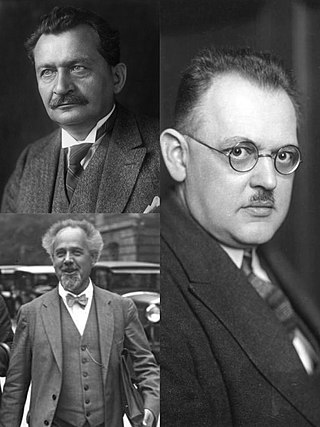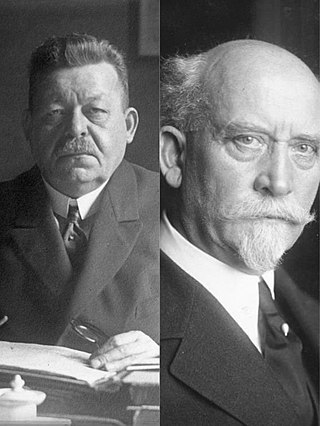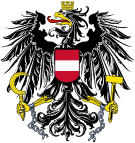The Greens of Andorra is a green political party in Andorra.

Federal elections were held in Germany on 20 May 1928. The Social Democratic Party of Germany (SPD) remained the largest party in the Reichstag after winning 153 of the 491 seats. Voter turnout was 75.6%.

Federal elections were held in Germany on 19 January 1919, although members of the standing army in the east did not vote until 2 February. The elections were the first of the new Weimar Republic, which had been established after World War I and the Revolution of 1918–19, and the first with women's suffrage. The previous constituencies, which heavily overrepresented rural areas, were scrapped, and the elections held using a form of proportional representation. The voting age was also lowered from 25 to 20. Austrian citizens living in Germany were allowed to vote, with German citizens living in Austria being allowed to vote in the February 1919 Constitutional Assembly elections.

Parliamentary elections were held in the Czech Republic on 19 and 20 June 1998. The Czech Social Democratic Party emerged as the largest party, winning 74 of the 200 seats. Voter turnout was 73.9%.

Legislative elections were held in Cisleithania, the northern and western ("Austrian") crown lands of Austria-Hungary, on 14 and 23 May 1907 to elect the members of the 11th Imperial Council. They were the first elections held under universal male suffrage, after an electoral reform abolishing tax paying requirements for voters had been adopted by the Council and was endorsed by Emperor Franz Joseph earlier in the year. However, seat allocations were based on tax revenues from the States.

Constituent Assembly elections were held in Austria on 16 February 1919.

Parliamentary elections were held in Austria on 24 April 1927. The result was a victory for the Unity List (Einheitsliste), an alliance of the Christian Social Party and the Greater German People's Party, which won 85 of the 165 seats. However this brief coalition failed to result in any larger proportion of the votes than when the CSP ran alone, losing votes to the Landbund. Voter turnout was 89.3%.

The German Freedom and Order Party was a political party in Austria.

The Centrist Democrats was a political party in Austria.

The German-National Party was a political party in Austria.

The German Democrats was a political party in Austria.

The Styrian Farmers' Party was a political party in Austria.

The Carinthian Farmers' Association was a political party in Austria.

The German People's Election Committee was a political party in Austria.

The Democratic Association of cities was a political party in Austria.

The Liberal Corporate Association of Salzburg was a political party in Austria.

The Civic Workers' Party or Civic Labour Party was a minor political party in Austria during the 1920s. It was led by former imperial foreign minister of Austria-Hungary, Ottokar Czernin.
The United People's Progressive Party was a political party in Bulgaria.
The National Democratic Party, later renamed National Radical Party, was a political party in Greece in the 1920s led by Georgios Kondylis.

The Agrarian Union Party was a political party in Romania.









